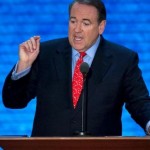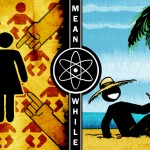Each week in Watching Politics From the Pew, Benjamin Bartlett offers a thoughtful Christian perspective on the latest political happenings in the news.
Let’s talk about the reasons we should not have political debates. A candidate for political office does not need to do much debating. A candidate has advisors who focus on details, so knowing details in a debate is not relevant. The debate format tends to promote grandstanding and cheap one-liners over substance. The format also encourages personal attacks and aggression over thoughtful policy discussion. Debates are mind-numbingly boring when they are long, and cotton-candy fluff when they are short. Good candidates have at times been undermined by debates, and terrible candidates have at times capitalized.
All true.
But debates are still important. An election is a long, extended job interview; perhaps the most grueling our country has to offer. It involves the candidate’s personal life, biography, career arc, political stances, consistency, philosophy, and even likeability. Debates are one way in which we attempt to draw out the best picture we can. We don’t trust political leaders to be honest with us, and we have reason not to; they put their best foot forward, and we want to see a more three dimensional picture.
So as moderators ask mostly boring questions and candidates give inane but low-risk answers, we keep our eyes open for a chink in the armor. We look for hints and clues as to a candidate’s real motivations, their passions, and their soul. We beg them to put themselves out there because vulnerability is one of the only things that makes a person feel authentic. And all the while, we hope the person we’ve been supporting stands the test.
I hate watching the silly debates they have set up now. I want to see a round-robin format of one-on-one debates between candidates, where a single area or department is the focus and speaking time is lengthened. I’ll probably never get it. But it’s a nice idea because it would help me believe the one thing that nobody believes about our politicians; that they have actual substance.
See, with the way our leaders are handled and portrayed, you pretty much cannot tell whether a candidate is smart or dumb, well-informed or puppet-like, reflective or dogmatic. I speak from personal experience here. I worked both in Michigan’s state government and in Washington DC; I know some politicians who are extremely smart and hard-working, and I know some who are just dumb. I know some who are senile, and that is not hyperbole.
If someone is asking to be my President, then, as a citizen it is part of my job to keep an eye on these people when they are in uncomfortable situations, even if most of the debate format is foolish. You never know; they might just reveal the fact that they cannot handle pressure. Or that they are not well prepared. Or that an issue is not as close to their heart as they suggested it is. Or that their concern for the weak is a façade.
The debates have one further, more personal value. Debates have a surprising impact on our ethics. We criticize candidates, but then we spend time talking about the issues they flubbed as if we were in the driver’s seat. This forces us to flesh out the way our politics interact with our everyday world. And it is there, in that description of how our ethics play out in pragmatics, that we see ourselves most clearly. My hope and prayer is that who we discover ourselves to be is the kind of person others could vote for, if they only had the opportunity.











